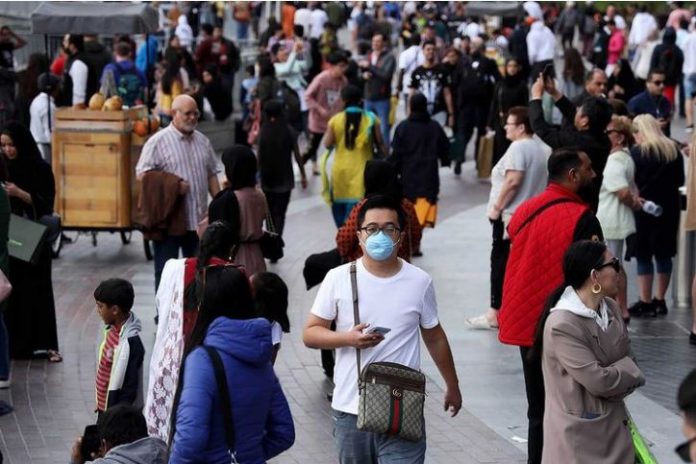Low oil prices to intensify credit pressures for most oil exporters
Malls in Dubai continue to attract shoppers despite the threat of coronavirus worldwide. Relatively greater levels of economic diversification and robust sovereign assets are expected to better shield the UAE economy compared to its GCC peers
Dubai: Relatively greater levels of economic diversification and robust sovereign assets will better shield the UAE economy compared to its GCC peers if the low oil prices are persist over a longer period, according to rating agency Moody’s.
Lower-for-longer oil prices will weaken the fiscal and external positions of all rated oil exporters, exacerbating sovereign credit pressures as lower oil demand persists for several years following the coronavirus pandemic, rating agency Moody’s said in a report.
To account for the deeper and longer-lasting shock to global oil demand as a result of the coronavirus shock, Moody’s has lowered its oil price assumptions and expects that Brent will average $35 per barrel this year and $45/barrel in 2021, or $8/barrel below the rating agency’s March 2020 assumptions.
“The deeper global economic recession that we now expect in 2020 in all major advanced economies and the drastic reduction in travel in particular have reduced demand for oil products beyond our previous assumptions,” said Alexander Perjessy, a Moody’s Vice President – Senior Analyst.
Better shielded
Among the higher rated GCC sovereigns, the negative credit pressures will be most pronounced in Kuwait and Saudi Arabia. By contrast, the rating agency said the UAE has stronger shock absorption capacity.
The UAE, according to Moody’s has a relatively lower reliance on hydrocarbons compared to many oil producing peers. Hydrocarbon GDP was around 21 per cent and 25 per cent of total nominal GDP in 2019, respectively. In 2019 fiscal reserves significantly exceed government debt in the UAE.
Kuwait and Saudi Arabia are among higher-rated GCC sovereigns where Moody’s expect the most significant negative credit pressure. In both cases, their fiscal positions are more vulnerable than their external positions.
For Saudi Arabia which generates around two thirds of its revenue from oil, lower oil prices is expected widen the fiscal deficit to more than 12 per cent of GDP in 2020 and more than 8 per cent in GDP in 2021 from 4.5 per cent of GDP in 2019, although the extent of the fiscal deterioration could be smaller if the government fully implements its recently announced policy measures, which include additional spending cuts and a tripling of the value added tax rate.
Without these additional measures, Moody’s expect government debt to increase to around 38 per cent of GDP by the end of 2021 from less than 23 per cent of GDP in 2019.
Rising fiscal pressures
Among the GCC countries fiscal pressures are likely to be bigger in Bahrain and Oman, with fiscal balances up to 5-7 percentage points of GDP weaker before even factoring in a shock to non-oil revenue or higher expenditure.
Oman is projected to have the largest fiscal deficit, at more than 20 per cent in 2020, and largest current account deficits, reaching 18.5 per cent and more than 20 per cent of GDP respectively, after taking into account the shock to non-oil revenue and our expectations of cuts in fiscal spending.
According to Moody’s for Bahrain, although hydrocarbons account for only 14 per cent of total GDP, implying a smaller impact of lower oil prices than for most other GCC sovereigns, its initial fiscal position is already very weak. The country recorded a fiscal deficit of 9.5 per cent of GDP in 2019 and government debt is close to 100 per cent of GDP. In addition, its external buffers are very thin, implying an exceptionally high external vulnerability.




